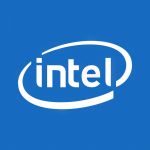Welcome to our dedicated page for Intel news (Ticker: INTC), a resource for investors and traders seeking the latest updates and insights on Intel stock.
Intel Corporation (Nasdaq: INTC) regularly issues news and press releases that highlight its role in designing and manufacturing advanced semiconductors and compute platforms. This news feed aggregates Intel’s publicly released updates, giving readers a single place to review the company’s own announcements about its technology roadmap, financial results and strategic relationships.
Recent Intel news has included announcements about Intel Core Ultra Series 3 processors, described by the company as the first AI PC platform built on Intel 18A process technology and powering a large number of PC designs. Intel has also reported on edge-certified versions of these processors for embedded and industrial use cases, touching areas such as robotics, smart cities, automation and healthcare.
Investors and followers of INTC stock can use this page to read Intel’s earnings releases, where the company discusses quarterly and full-year financial results, segment performance for Intel Products and Intel Foundry, and commentary on demand trends and strategic priorities. Intel’s news also covers participation in investor conferences, where representatives discuss the company’s business and strategy with the financial community.
Another important category of Intel news involves strategic transactions and collaborations. The company has announced agreements with the U.S. Department of Commerce under the CHIPS Act framework, securities purchase agreements with NVIDIA and SoftBank, and the sale of a majority interest in its Altera business. Intel has also publicized a collaboration with NVIDIA to develop AI infrastructure and personal computing products that combine Intel’s CPU technologies with NVIDIA’s AI and accelerated computing platforms.
By reviewing Intel’s own press releases on this page, readers can follow developments in areas such as AI computing, foundry services, government funding arrangements and majority-owned subsidiaries like Mobileye. This makes the INTC news feed a useful reference for tracking how Intel describes its progress across client computing, data center and AI, manufacturing and capital structure initiatives.
Intel is harnessing artificial intelligence (AI) responsibly to mitigate risks and foster positive change. AI is transforming daily life, enabling advancements in areas like voice banking for neurological conditions and enhancing safety in autonomous vehicles. While Hollywood often portrays AI negatively, Intel emphasizes ethical AI development and its commitment to diversity and inclusion in AI practices. Their Responsible AI Advisory Council evaluates projects for ethical risks, ensuring adherence to high standards.
Intel has announced a $17.7 million funding initiative aimed at developing semiconductor education programs in Ohio. This investment supports eight proposals from various educational institutions, involving over 80 higher education entities in the state. Intel's commitment over the next decade totals $50 million, focusing on creating a skilled workforce essential for its new chipmaking facilities, which are expected to create 7,000 construction jobs and 3,000 permanent jobs. This initiative also targets workforce shortages in semiconductor manufacturing.
Intel Corporation and Broadcom Inc. demonstrated the world’s first cross-vendor Wi-Fi 7 technology, achieving speeds over 5 Gbps. Utilizing an Intel Core-based laptop, the Wi-Fi 7 solution showcased ultra-high speed and low latency capabilities essential for new mobile PC experiences. Wi-Fi 7 promises improved reliability and efficiency with features like 320 MHz channels and 4K QAM modulation, supporting applications such as AR, VR, and 16K streaming. This milestone indicates a readiness for Wi-Fi 7's widespread adoption, enhancing connectivity for consumers and businesses globally.
Intel Corporation announces the retirement of
Tencent, a leading public cloud service provider in China, has achieved an impressive up to 85% performance boost for its TencentDB for MySQL by utilizing Intel oneAPI Tools. This enhancement, based on Intel® Xeon® processors, showcases the effectiveness of the Intel® oneAPI DPC++/C++ Compiler and Intel® VTune™ Profiler in optimizing cloud database performance.
Intel Corporation has entered into a groundbreaking agreement with Brookfield Asset Management to co-invest up to
Intel Corporation will engage in several upcoming investor events, highlighting key technology discussions. On August 31, at 9 a.m. PDT, Greg Lavender will discuss software's role in data center architecture at Arete Research Future of Compute Series. Subsequently, at 9:45 a.m. PDT, Sandra Rivera will present on the Datacenter and AI Group at the Deutsche Bank Technology Conference. Additionally, on September 7, at 6:30 a.m. PDT, CEO Pat Gelsinger will address Intel's corporate strategy at the Evercore ISI TMT Conference. Webcasts will be available on Intel's Investor Relations website.
Intel Corporation has elected Lip-Bu Tan, a notable figure in the semiconductor industry, to its board of directors, effective September 1, 2022. Tan is currently the executive chairman of Cadence Design Systems and has extensive experience in software and venture capital. His addition is expected to provide valuable insights, particularly to Intel's M&A Committee. Tan expressed enthusiasm about contributing to Intel's transformation under CEO Pat Gelsinger, aiming to leverage upcoming opportunities in the semiconductor market.
Summary not available.
Intel and MediaTek have formed a strategic partnership to manufacture chips using Intel Foundry Services (IFS). This collaboration aims to enhance MediaTek's supply chain resilience by providing access to IFS's advanced process technologies and significant manufacturing capacity in the US and Europe. MediaTek will use these technologies for a variety of smart edge devices, catering to the increasing global demand. IFS's commitment to expanding its capacity, particularly in Ohio and Germany, further supports this initiative.

